

Tao Te Ching
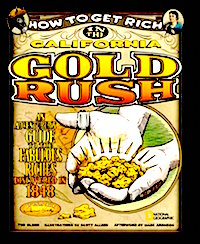
Less is More
During the gold rush, gold was easy and quick to mine. Later and still today, those same mountains have gold—only much harder and expensive to extract. The 80/20 rule (Pareto principle) applies this idea to economics, science, software, sports, health, and many other fields. A foundation for our theme of “Less is More,” this same pattern may also apply to religion and philosophy. We may discover 80% of our insight and realization from the first 20% of our study and practice while the deeper we go, the less comes out. If true, this creates a strong rationale for quickly moving on from the religion/culture/status quo of our youth while not being too trapped in any tradition for too long. Less is more.
Quotes (151)

“Without taking credit, a wise man is accredited; laying no claim, he is acclaimed.”

“Tampering makes thing worse because life is sacred just as it it.”

“The Sage never has to grapple with big things yet he alone is capable of achieving them!”

“A dog is not considered a good dog because he is a good barker. A man is not considered a good man because he is a good talker.”
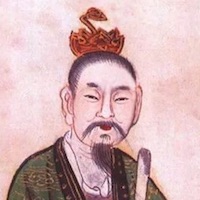
“Limiting what is kept results in clarity, minimizing what is sought results in attainment... If you can attain the center, then you can govern the eternal.”
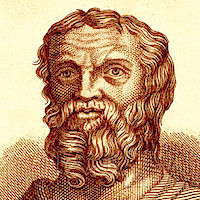
“The gods love to thwart whatever is greater than the rest. They do not suffer pride in anyone but themselves.”
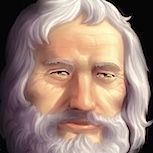
“Greedy for sights you should not see, impatient for deeds you should not do... he who best enjoys each passing day is truly blessed.”
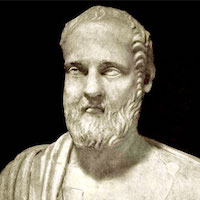
“It is more important to know where you are going than to get there quickly. Do not mistake activity for achievement.”
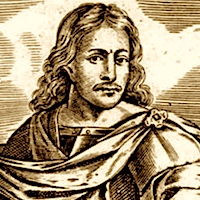
“To want nothing is godlike; and the less we want, the nearer we approach the divine.”
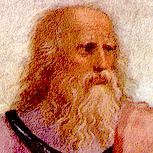
“Wise men speak because they have something to say; fools because they have to say something.”
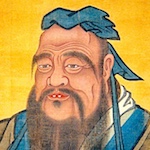
“Only a person who can refuse to act in inappropriate situations is capable of acting at appropriate times.”
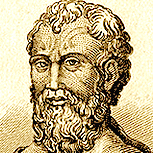
“The reason we have two ears and only one mouth is so we may hear more and talk less.”

“In cooking a small fish, too much turning ruins it. In governing a great state, too much reform embitters the people. Thus a ruler who possesses the Way values inaction over reform.”

“If tasks are big and many and are frequently shifted, few of them can be accomplished; if we move a big vessel too often, it will incur many damages; if, when governing a big country, you alter laws and decrees too often, the people will suffer hardships.”
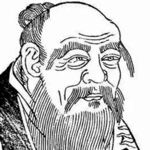
“If you cook a small fish, don’t remove its entrails, don’t scrape off its scales, and don’t stir it. If you do, it will turn to mush. Likewise, too much government makes those below rebel.”
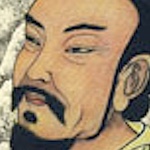
“Too many deals impoverish the merchant, too much artistry exhausts the craftsman. When the span of a tree is great, its height is compromised. When the flow of a river is wide, its depth is compromised. If you have knowledge but not skillful means, you will never accomplish anything.”
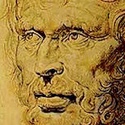
“love is built up bit by bit by mere usage. Nothing can resist the continually repeated impact of a blow, however light, as you see drops of water falling on one spot at long last wear through a stone.”

“The greatest benefit that learning brings to men is… to like better the mean state than the higher.”

“Nature hath given men one tongue but two ears, that we may hear from others twice as much as we speak.”
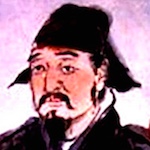
“As with a tree, the more of it there is, the farther it is from its roots. The less of it there is, the closer it is to its roots. ‘More’ means more distanat from what is real. ‘Less’ means closer.”

“The world was easier to understand when choices fell away. It was like understanding a tree when all the leaves dropped: There it was, the pattern of the boughs, the tree itself.”
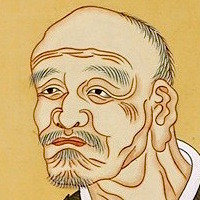
“My miracle? When I’m hungry I eat, when I get sleepy I sleep. When they eat, it can’t be called eating since they do so with a hundred entanglements. When they sleep, it can’t be called sleeping since their mind is beset with worries.”
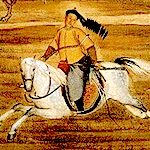
“If rulers disdain something as easy, misfortune and trouble are sure to arise from it. If they do not pay attention to small matters, eventually they will overwhelm even the greatest virtue.”
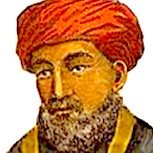
“Seek what you need and give up what you need not. For in giving up what you don’t need, you’ll learn what you really do need.”
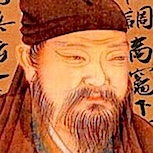
“Through austerity, we learn to stop. When we know when to stop, we are always content.”

“No need to tell you what you already know.
No need to point out what you already see.”

“It's easy to extinguish a fire when it's small,
You don't even need water.
It's easy to subjugate an enemy when he is small,
You don't even need weapons.”
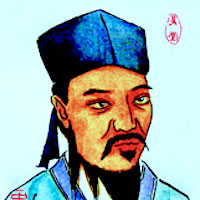
“By having less, it’s easy to have more. By having more, it’s easy to become confused”
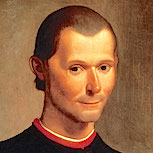
“Benefits should be granted little by little so that they may be better enjoyed.”

“The higher he ascends, the darker is the wood; it is the shadowy cloud that clarified the night, and so the one who understood remains always unknowing,”

“How far that little candle throws his beams! So shines a good deed in a weary world.”

“There is always time to add a word, never to withdraw one. Talk as if you were making your will: the fewer words, the less litigation.”

“Do not show your wounded finger, for everything will knock up against it… The wise never confess to being hit… Never disclose the source of pain or of joy, if you wish the one to cease and the other to endure.”

“Let there be no unnecessary expenditure either of knowledge or power… too much display today, there will be nothing to show tomorrow.”
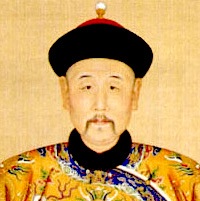
“As Lao-tzu says: ‘Know your limits and you’ll suffer no disgrace, know when to stop and you’ll be in no danger.’ Let no man take too much.”

“One Science only will one Genius fit;
So vast is Art, so narrow Human Wit.”

“Remember not only to say the right thing in the right place, but far more difficult still, to leave unsaid the wrong thing at the tempting moment.”

“Teach your child to hold his tongue, he’ll learn fast enough to speak.”
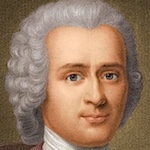
“Oh you, who have never heard the voice of heaven, who think man destined only to live this little life and die in peace; you who reign in populous cities with your fatal acquisitions, your restless spirits, your corrupt hearts and endless desires... retire to the woods, renounce civilizations advances and vices from which always arise more real calamities than even apparent advantages.”
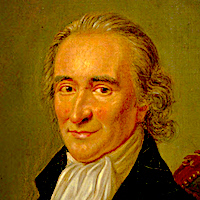
“The more perfect civilization is, the less occasion has it for government… government, even in its best state is but a necessary evil; in its worse state, an intolerable one.”
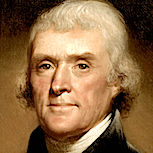
“I hope our wisdom will grow with our power, and teach us, that the less we use our power, the greater it will be.”
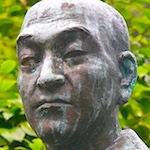
“The more they talk, the more wrong they go. It’s like pouring on oil to put out a fire - just foolishness and nothing else.”
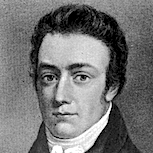
“The happiness of life is made up of minute fractions - the little, soon forgotten charities of a kiss or a smile, a kind look or heartfelt compliment.”

“Advice is like snow; the softer it falls, the longer it dwells upon, and the deeper it sinks into the mind.”
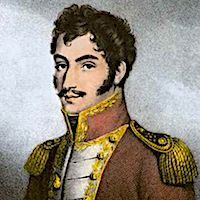
“The distinguishing characteristic of small republics is stability: the character of large republics is mutability.”

“The man nature has endowed with intellectual wealth is the happiest. Solitude is welcome, leisure is the highest good, and everything else is unnecessary, even burdensome. What external promptings he wants come from the works of nature, and from contemplation of human affairs and the achievements of the great of all ages and countries.”

“As the biggest library in disorder is not as useful as a small, well organized one; a vast accumulation of knowledge is of far less value than a much smaller amount thought through and compared to personal experience and other knowledge.”
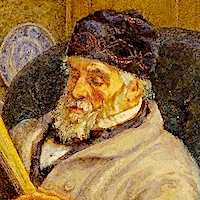
“When the oak is felled the whole forest echoes with its fall, but a hundred acorns are sown in silence by an unnoticed breeze.”
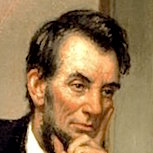
“And in the end, it's not the years in your life that count. It's the life in your years.”
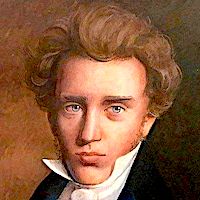
“Let us worship God again in simplicity instead of making a fool of him in splendid edifices.”
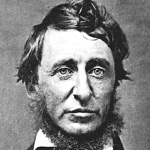
“I am convinced that if all men were to live as simply as I then did, thieving and robbery would be unknown These take place only in communities where some have got more than is sufficient while others have not enough.”

“For it matters not how small the beginning may seem to be: what is once well done is done forever.”
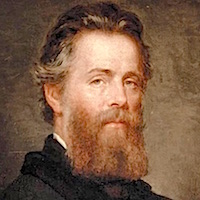
“a sleeping apartment should never be furnished with a fire, which is one of the luxurious discomforts of the rich. … the height of this sort of deliciousness is to have nothing but the blanket between you and your snugness and the cold of the outer air… to lie like the one warm spark in the heart of an arctic crystal.”
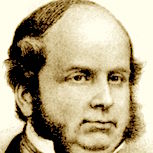
“We frequently meet with men whose erudition ministers to their ignorance, and who, the more they read the less they know.”
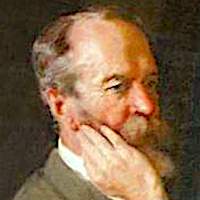
“I am done with great things and big plans, great institutions and big success. I am for those tiny, invisible loving human forces that work from individual to individual, creeping through the crannies of the world like so many rootlets which will rend the hardest monuments of pride.”
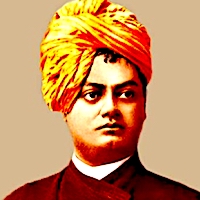
“Books are infinite in number and time is short. The secret of knowledge is to take what is essential. Take that and try to live up to it.”
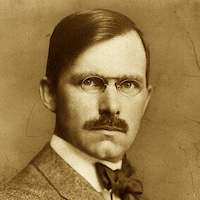
“He never likes to see any one thing too large, as a church, a party, a reform, a new book, or a new fashion, lest he see something else too small; but will have everything in true proportion.”

“To be without some of the things you want is an indispensable part of happiness.”
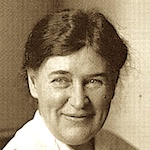
“He squandered too much in the heat of personal communication [and] narrowly missed being a great poet... his bursts of imaginative talk were fatal to his poetic gift.”
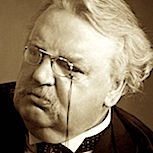
“One sees great things from the valley; only small things from the peak.”
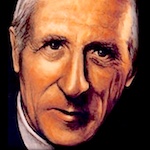
“Do not forget that the value and interest of life is not so much to do conspicuous things...as to do ordinary things with the perception of their enormous value.”
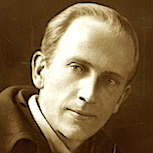
“It is more fun to talk with someone who doesn't use long, difficult words but rather short, easy words like ‘What about lunch?’”

“And yet the most valuable things are attained with the least effort. But one does not realize their importance. One would rather have something which is attained with a great effort.”

“It is not he who has spoken a hundred words aloud who has won; it is he who has perhaps spoken only one word.”

“'Sometimes,' said Pooh, 'the smallest things take up the most room in your heart.'”

“For in the dew of little things the heart finds its morning and is refreshed.”
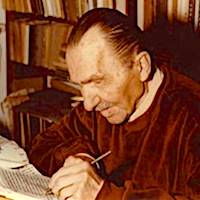
“Once more I realized to what an extent earthly happiness is made to the measure of man. It is not a rare bird which we must purse at one moment in heaven, at the next in our mind. Happiness is a domestic bird found in our own courtyards.”

“I said nothing. I had learned that this is usually the best thing to say.”
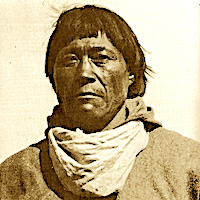
“The spirits do not like women with little children to stay too long away from their house… No one who is to become a skillful hunter or a a good shaman must remain out too long when visiting strange houses.”

“The artist's most important work lies in conception rather than in execution 'men of genius do most when they work least.' (Vasari)”
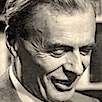
“It’s dark because you are trying too hard… Just lightly let things happen and lightly cope with them… throw away your baggage and go forward. There are quicksands all about you, sucking at your feet, trying to suck you down into fear and self-pity and despair. That’s why you must walk so lightly.”
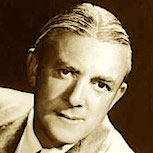
“The English regard slackness as a vice. We, on the other hand should vastly prefer it to tension. Is there not too much tension in the world…”
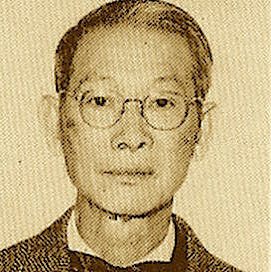
“The best way to govern is to leave the people alone and to follow the course of taking no action. This ideal of laissez faire originated in Taoism.”
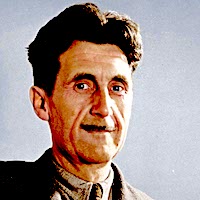
“Never use a long word where a short one will do. If it is possible to cut a word out, always cut it out... let the meaning choose the word, and not the other way about.”
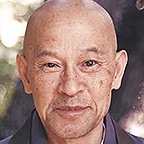
“Don’t create problems which are extra. Just the problems you already have are enough.”

“You may think that if there is no purpose or no goal in our practice, we will not know what to do… The way to practice without having any goal is to limit your activity to what you can do just now, in this moment… just concentrate on the activity which we do in each moment.”

“The hours run down.
The days pass on.
One achievement remains:
merely being alive.”

“Even today, we are generally told that gigantic organizations are inescapably necessary; but when we look closely we can notice that as soon as great size has been created there is often a strenuous attempt to attain smallness within bigness.”
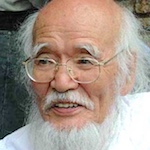
“I asked whether the fields really need to be plowed and turned, whether the rice farmer really has to transplant his seedlings, whether it is necessary in fact to spread fertilizer on the fields... I learned that it isn't necessary to do anything... constant activity kills the microbes and drives the air from the earth... Man kills and destroys the soil.”
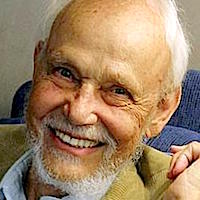
“If you are drilling for water, it's better to drill one 60-foot well than ten 6-foot wells.”
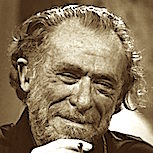
“You begin saving the world by saving one person at a time; all else is grandiose romanticism or politics.”

“it is the ability to make distinctions—and the smaller the distinctions made, the higher the intellect that makes them—by which we judge intellect.”
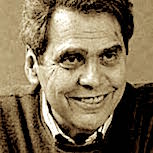
“Orwell feared those who would deprive us of information. Huxley feared those who would give us so much that we would be reduced to passivity and egoism.”
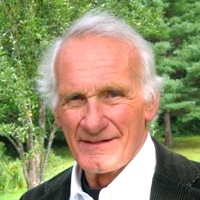
“The more power we exercise over natural process, the more powerless we become before it.”
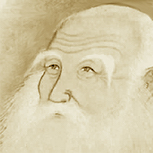
“The more information we take in, the less we have. The less contemplation, the more new writes over the old, the more mindless and meaningless our lives become.”

“If we do not live where we work, when we work we are wasting our lives and our work too.”
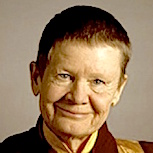
“Rejoicing in ordinary things is not sentimental or trite. It actually takes guts. Each time we drop our complaints and allow everyday good fortune to inspire us, we enter the warrior's world.”
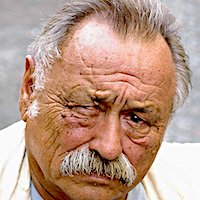
“Rumi advised me to keep my spirit up in the branches of a tree and not peek out too far, so I keep mine in the very tall willows along the irrigation ditch out back.”
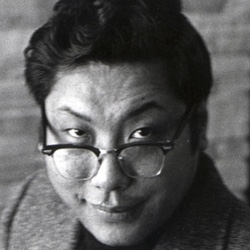
“We end up bombarded by all kinds of alternatives, and we are never able to relate with any of them properly.”
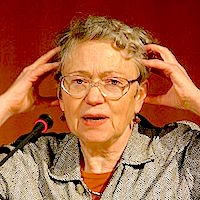
“Rosa Parks triggered the civil rights movement and proved you can be an activist by sitting down.”

“you don’t spell out the truth, you imply the truth with wakeful delight… When you spell out the truth it loses its essence and becomes either ‘my’ truth or ‘your’ truth… By implying the truth, the truth doesn’t become anyone’s property.”
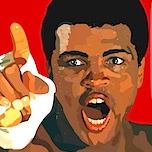
“It isn’t the mountains ahead to climb that wear you out; it’s the pebble in your shoe.”
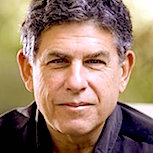
“Commenting on Chuang Tzu’s story about the Marquis of Lu trying to help a seabird, Stephen Mitchell writes, 'The marquis…by acting out the Golden Rule, became the golden fool… Love your neighbor as yourself: leave him alone.'”
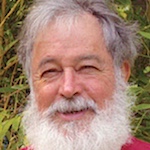
“Poetry has the ability to point us toward the truth then stand aside, while prose stands in the doorway relating all the wonders on the other side but rarely lets us pass.”
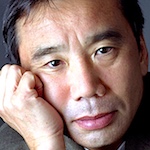
“What's really important is not the big things other people have thought up, but the small things you, yourself have.... Or maybe the smaller the notion, the harder it is to grasp?”
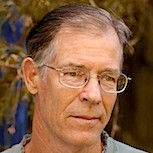
“health, social life, job, house, partners, finances; leisure use, leisure amount; working time, education, income, children; food, water, shelter, clothing, sex, health care; mobility; physical safety, social safety, job security, savings account, insurance, disability protection, family leave, vacation; place tenure, a commons; access to wilderness, mountains, ocean; peace, political stability, political input, political satisfaction; air, water, esteem; status, recognition; home, community, neighbors, civil society, sports, the arts; longevity treatments, gender choice; the opportunity to become more what you are — that's all you need”
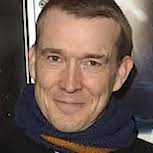
“The word 'faster' is becoming a synonym of 'better.' As if the goal of human evolution is to be a sentient bullet.”

“the parents of the Millennial Generation may have erred on the side of over-coddling their kids and accidentally tipped the delicate balance... when it comes to protecting our kids, sometimes less is more.”
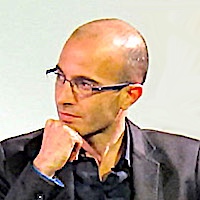
“When Alexander the Great once visited Diogenes as he was relaxing in the sun and asked if there were anything he might do for him, the Cynic answered the all-powerful conqueror, 'Yes, there is something you can do for me. Please move a little to the side. You are blocking the sunlight.'”

“Every new invention just puts another mile between us and the Garden of Eden.”

“If we try to complicate our lives, developing clever plans and ambitions, we lose sight of the way in which small, insignificant things actually hold the key to what we seek.”

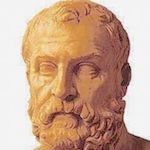
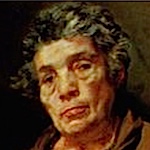

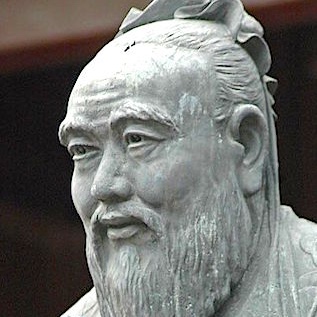

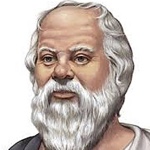

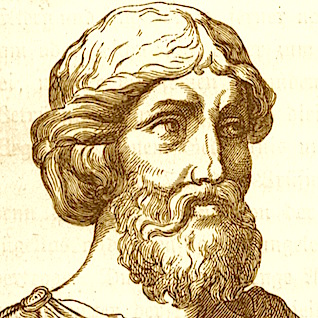



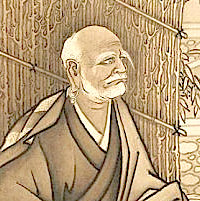

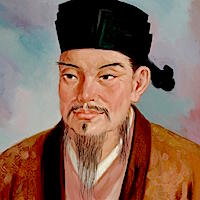
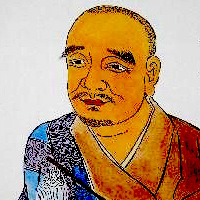
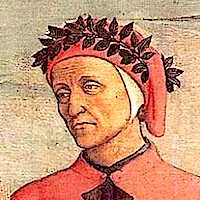

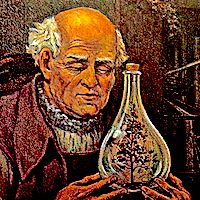
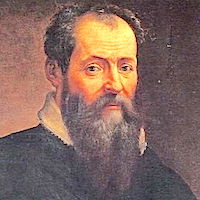
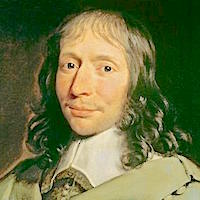

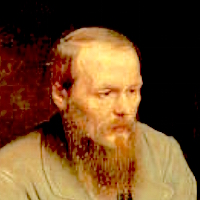

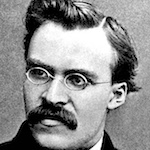


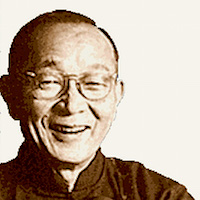
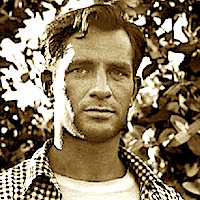
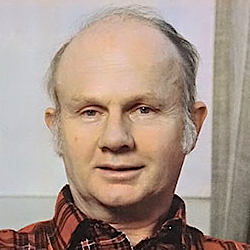
Comments (0)